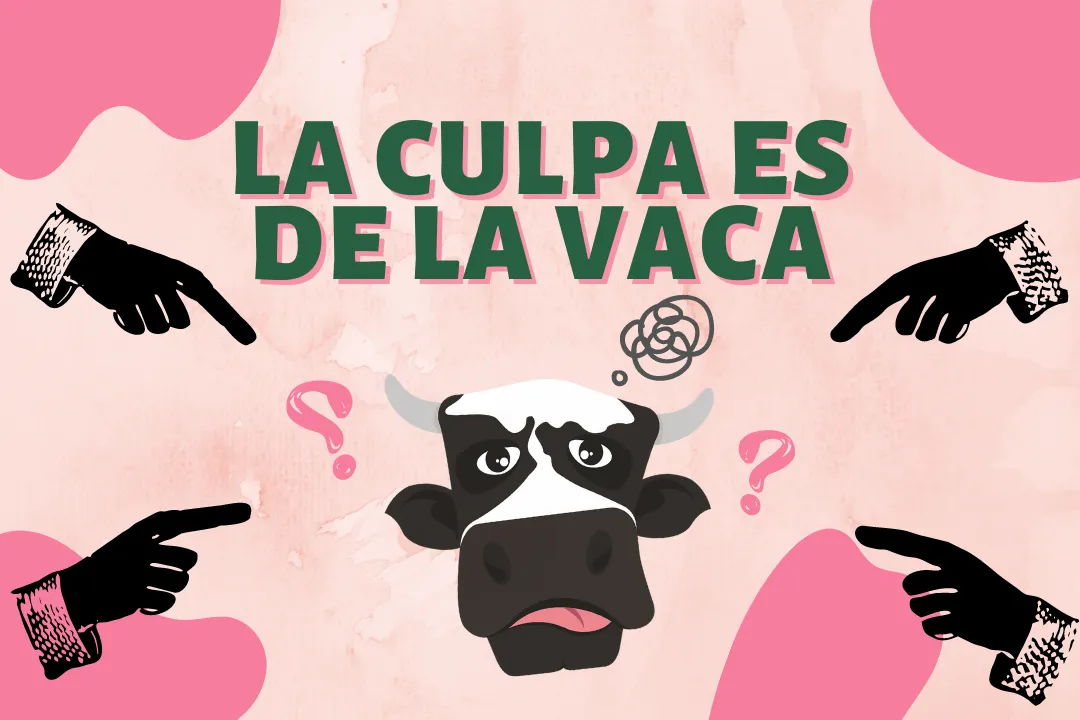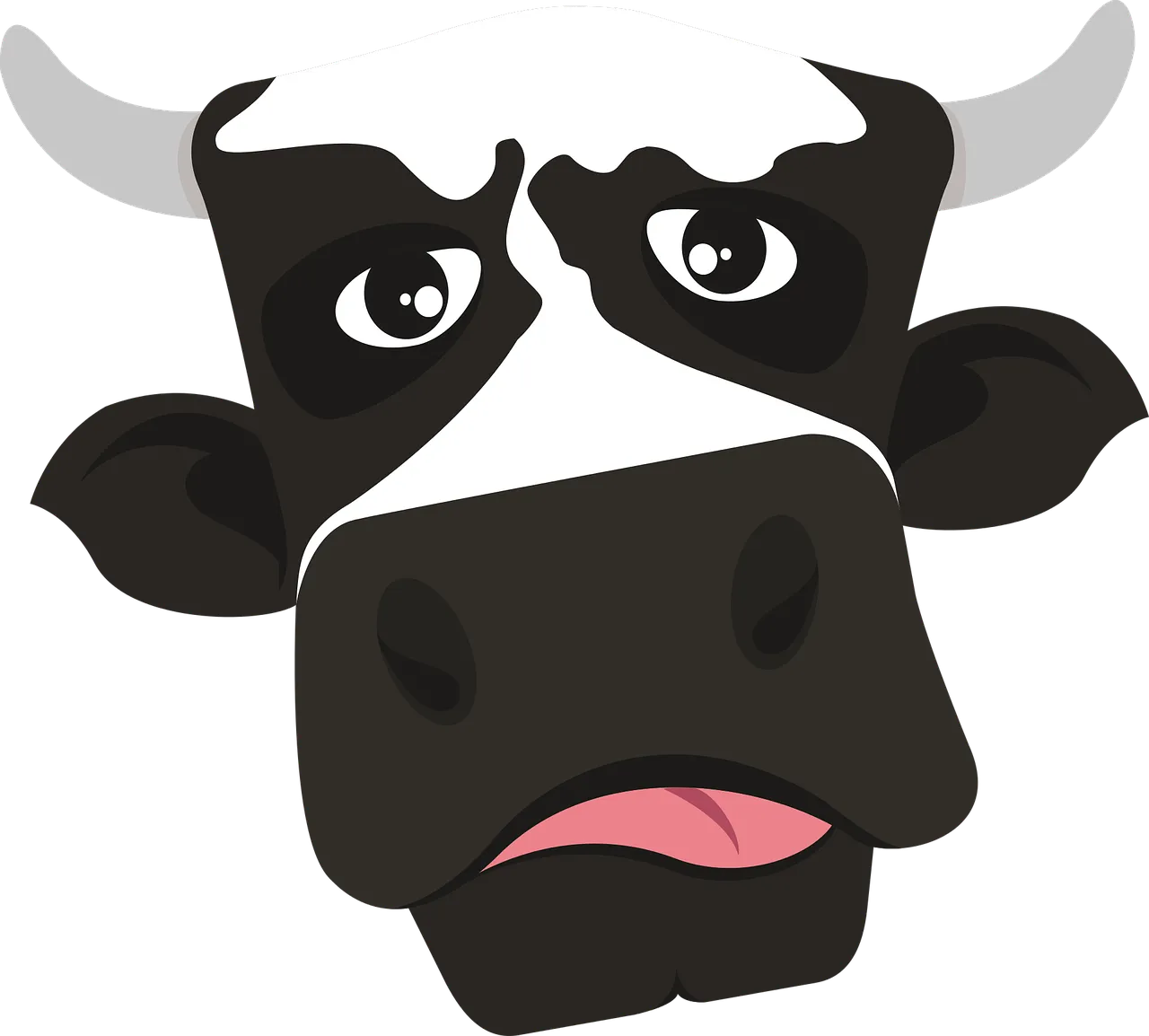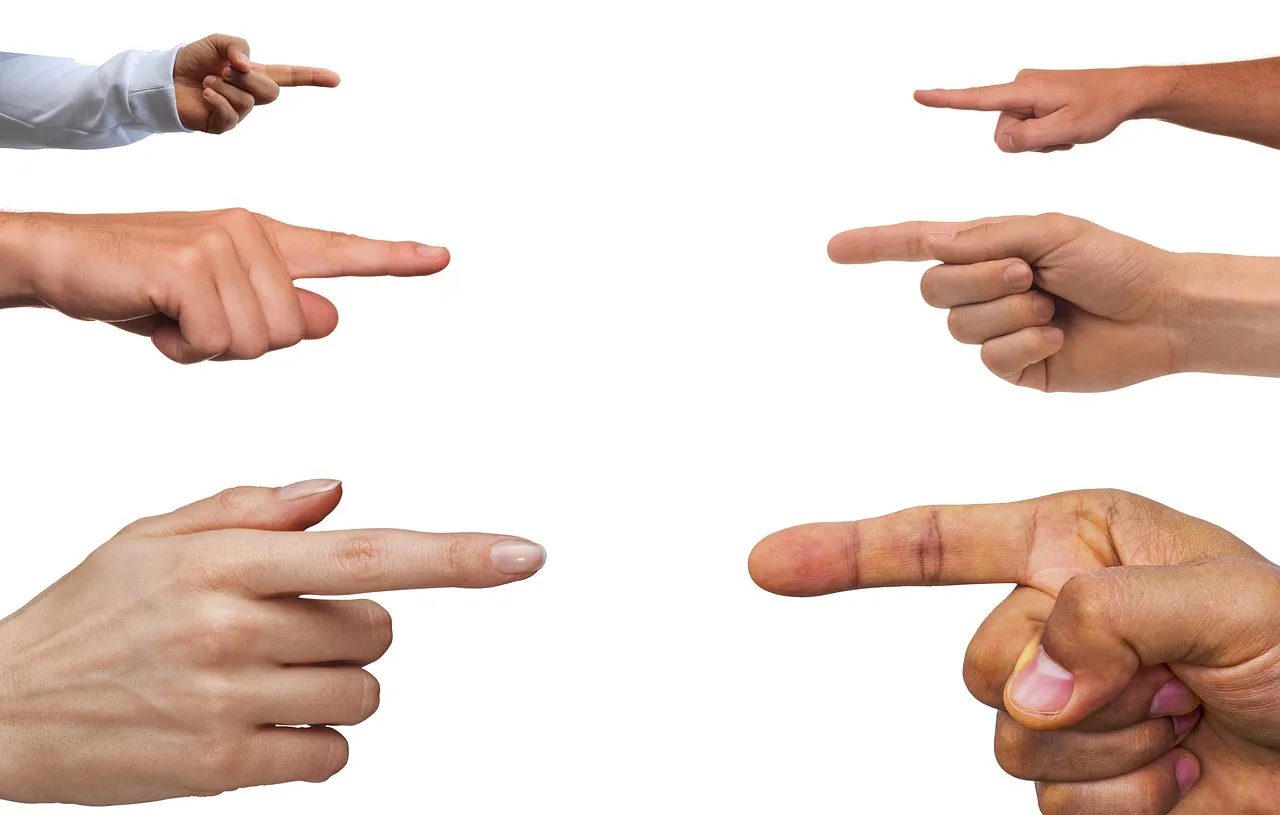
Hace muchos años, en casa de mis padres y cuando aún vivía con ellos, leí el libro llamado "La Culpa es de la Vaca", este libro, no habla de un tema en específico, hay en él varias anécdotas que nos invitan a reflexionar sobre la vida misma.
Hay algo que al ser humano en su mayoría le cuesta aceptar y es cuando se equivoca, no significa esto que vamos a vivir sintiéndonos culpables por todo y con la culpa sobre nuestros hombros siempre. Pero sería mucho más fácil todo, si en lugar de negar que fallamos, si en lugar de negar que fue por nuestra causa que pasó algo o dejó de pasar, aprendieramos a aceptar, que definitivamente la culpa no es de la vaca.
Many years ago, at my parents' house and when I was still living with them, I read a book called "La Culpa es de la Vaca", this book does not talk about a specific topic, there are several anecdotes in it that invite us to reflect on life itself.
There is something that most human beings find difficult to accept and that is when they make mistakes. This does not mean that we are going to live feeling guilty for everything and with guilt on our shoulders all the time. But it would be much easier if instead of denying that we failed, if instead of denying that it was because of us that something happened or didn't happen, we would learn to accept that it is definitely not the cow's fault.

Fuente|Source
Todas las personas nacemos sabiendo que tenemos derechos e incluso aprendemos en la mayoría de los casos, ha saber bien como hacerlos valer, pero que difícil se nos hace aprender, que tenemos también deberes y que estos conllevan una gran responsabilidad.
A medida que crecemos, vamos adquierendo más responsabilidades, bien sean académicas (estudios), laborales, como individuos al formar una relación y luego una familia, y así muchas otras cosas. Ha medida que esto va pasando puede que cometamos errores, que fallemos y no por eso vamos a ir por la vida culpando a otros de nuestros fracasos.
We are all born knowing that we have rights and in most cases we even learn how to assert them, but how difficult it is for us to learn that we also have duties and that these entail a great deal of responsibility.
As we grow up, we acquire more responsibilities, be they academic (studies), at work, as individuals when we form a relationship and later a family, and many other things. As this happens, we may make mistakes, we may fail, but we will not go through life blaming others for our failures.

A lo largo de mi vida he sido la vaca, no, no porque sea gordita 😅 si no porque he recibido la culpa de algo que no era mi responsabilidad e incluso de cosas donde no he tenido nada que ver, solo porque alguien no tuvo la capacidad de ratificar su error y aceptar así que en realidad es su culpa. Pero, no todo queda allí, también he culpado a unas cuantas vacas de mis errores, sin embargo he cambiado y sigo intentando.
He llegado al punto de darle un parado a quien me quiere culpa de sus errores o fallas, de decirle que debe ser capaz de aceptar que es su culpa y no la mía, así estás personas se molesten e incluso dejar que cada quien se encargue de su asunto.
Creo que a las personas que más les cuesta ramificar la culpa, es aquellas que tienen cierta autoridad, por ejemplo a un jefe ante sus empleados, a un policía, juez o político, pero hay un tipo de autoridad que es nuestro ejemplo inmediato y son los padres. A muchos padres les cuesta aceptar que están equivocados o que algo fue culpa de ellos y peor aún, no piden perdón o al menos disculpa.
Throughout my life I have been the cow, no, not because I am fat 😅 but because I have been blamed for something that was not my responsibility and even for things that I had nothing to do with, just because someone did not have the capacity to ratify their mistake and accept that it is actually their fault. But, not everything stays there, I have also blamed a few cows for my mistakes, however I have changed and I keep trying.
I have come to the point of giving a stop to those who want to blame me for their mistakes or failures, to tell them that they should be able to accept that it is their fault and not mine, even if they are upset, and even to let everyone take care of their own business.
I think that the people who find it hardest to branch blame are those who have a certain authority, for example a boss in front of his employees, a policeman, a judge or a politician, but there is one type of authority that is our immediate example and that is our parents. Many parents find it hard to accept that they are wrong or that something was their fault and worse, they do not apologise or at least ask for forgiveness.

Fuente|Source
Si tan solo, tuviéramos la capacidad de aceptar que fue nuestro error, eso nos llevaría al perdón, y el simple hecho de arrepentirse y mostrase así, de aceptar y decir: "Sabe qué, si fue mi culpa y no de tal cosa o tal persona", en lugar de justificarse o culpar a otros, con cosas como: "Es que no me ayudó", "Yo no sabía", "Fue tal persona o por tu culpa me pasó esto" etcétera. Eso cambiaría el mundo, nos evitaría problemas y seríamos mejores.
Y es que el libro "La culpa es de la Vaca", solo usa a la vaca como ejemplo, ya que la Anécdota trata justo de una empresa que vende cueros y pues venían de las vacas. Pero aplica para todo, le vivimos echando la culpa a cualquiera e incluso a cosas, al clima, a la situación país, de nuestros errores, pero difícilmente reconocemos que hemos fallado.
Debemos dejar de culpar tanto a las vacas y aceptar nuestros errores, aprender de ellos y avanzar en el camino. Cuando culpamos a otros, solo mostramos lo inmaduros que somos para asumir nuestras responsabilidades y las fallas emocionales que tenemos, al querer siempre que otro pague por algo que solo fue la consecuencia de una mala acción nuestra o decisión.
If only we had the capacity to accept that it was our mistake, that would lead us to forgiveness, and the simple fact of repenting and showing repentance, of accepting and saying: "You know what, it was my fault and not such and such a thing or such a person", instead of justifying or blaming others, with things like: "It just didn't help me", "I didn't know", "It was such and such a person or because of you this happened to me" etcetera. That would change the world, it would save us from problems and we would be better.
The book "La culpa es de la Vaca", only uses the cow as an example, because the Anecdote is about a company that sells leather and it came from cows. But it applies to everything, we blame everyone and even things, the weather, the country's situation, our mistakes, but we hardly recognise that we have failed.
We must stop blaming the cows so much and accept our mistakes, learn from them and move forward. When we blame others, we only show how immature we are to assume our responsibilities and how emotionally flawed we are, by always wanting someone else to pay for something that was only the consequence of a bad action or decision of ours.
Si te interesa adquirir el Libro y leer sobre sus anécdotas, parábolas y reflexiones que sirven para la vida misma, puedes conseguirlo en Amazon - La culpa es de la Vaca y también algunas otras versiones del mismo.
If you are interested in purchasing the book and reading about its anecdotes, parables and reflections that are useful for life itself, you can get it from Amazon - The Cow's Fault and also some other versions of the book.

Imagen principal creada en Canva. Imagen de la Vaca Fuente.
Main image created in Canva. Image of the Cow Source.
